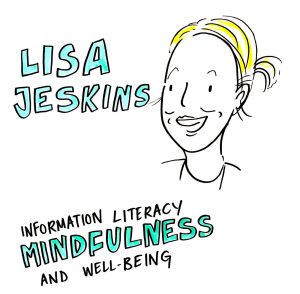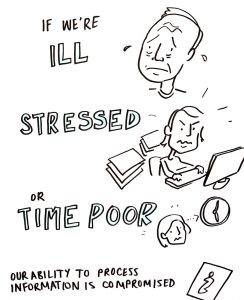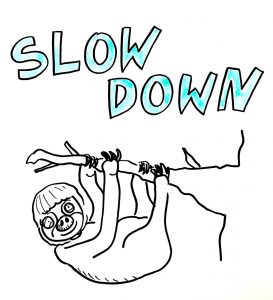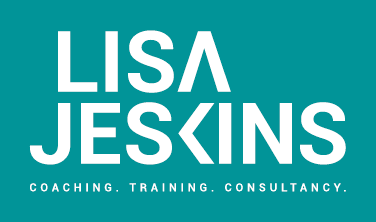
Illustrator @tombaileyart
We live in the age of information overload, of misinformation and more worryingly, of disinformation. And we’re living through a global pandemic. What could possibly go wrong?
Have you been scrolling wildly through Facebook? Twitter? Instagram? ALL of the social media? Are you steadfastly glued to 24-hour news and the daily briefing? Reading different news sites on the Internet. Yep me too. Or I was. And it was stressing me out so I’m trying to cut myself off now.
In case you’re wondering, misinformation is when someone shares incorrect information by accident or without malicious intent. Disinformation is when something is shared with the express purpose of deceiving someone or changing opinions. For example, when politicians inflate the number of gloves the health service has, to give the impression they have provided enough protective equipment.

The thing that’s problematic about both misinformation and disinformation is that our ability to think rationally and make good judgements are compromised when we’re not well, stressed or trying to find information quickly. (Carlyle, 2019). As you can imagine, this means when we’re reading and scrolling, we will actually struggle to process information properly and we won’t be able to evaluate or analyse it as we normally would.
So what can we do about it?

Illustrator @tombaileyart
- Try and be more mindful and present when reading.
- Slow down when you’re reading and when you’ve finished reading, ask yourself some of the following questions (especially before sharing it on)
- Where did this article come from? Who wrote it?
- How old is it?
- How reliable is it?
- How objective do you think it is? Is it written from a biased viewpoint or only one side of the story?
- What do the authors have to benefit from you agreeing with them?
- Where is the money coming from for the article? Who gains or earns money from you thinking this?
- What are you gaining from watching or listening or reading? I asked myself and realised that I was becoming more anxious or cross depending on what it was.
- If you decide you’re not gaining anything and actually what you’re feeling is negative – what can you do to limit your contact with it?
- Some people have taken certain social media apps of their phone, I’m limiting myself to only looking for cat videos or funny stories.
- I’ve stopped watching the daily briefings and if I want to check something about coronavirus, I will search the NHS website and gov.uk or other trusted sources of information. My anxiety levels have gone right down.
We’ve become used to a fast-paced world and we want to save time and do more. However scrolling wildly through news stories or social media can be a form of avoidance or the numbing that I spoke about in ‘In a time of crisis’. We create a situation where we don’t have time to reflect on ourselves and the big questions of the day. We don’t have to be alone with our thoughts and we don’t use our time to reflect on whether politicians really are looking out for us.
So it’s even more important that now, when we’re scared and worried about our health, that we take a breath and see if we can think about what we have just read. We could be making ourselves more anxious than we need to be.
*Or the information literacy one. Or at least the one where I talk to you about why I (and Jane Secker and others) think our information seeking behaviour needs to be linked with mindfulness.
References
- Carlyle, R., 2019. Health Literacy: Information Literacy For Life. LILAC 2019, University of Nottingham. Presentation. Video and slides.
- Secker, J. and Jeskins, L., 2019. Information Literacy And Learning For Health And Well-Being. It’s Great Up North, Harrogate. (OMG I’ve only gone and referenced myself. Heh.)
The fantastic illustrations are by Tom Bailey, from my presentation at the YOHHLNET Christmas Study Day 2019 @tombaileyart
